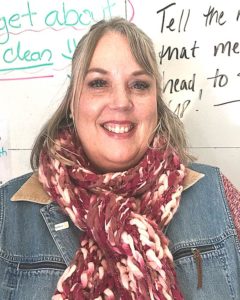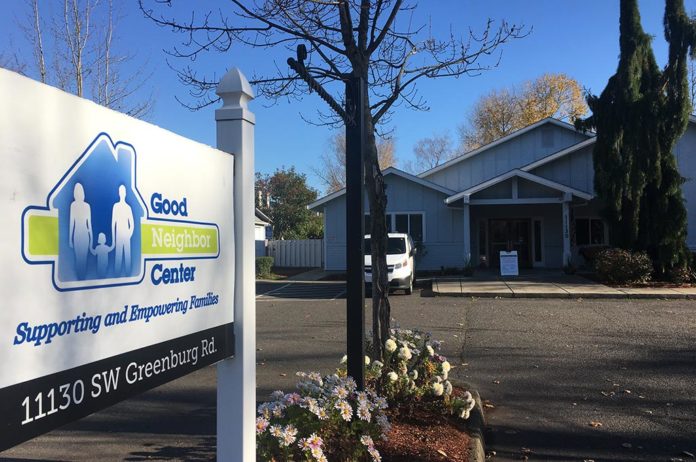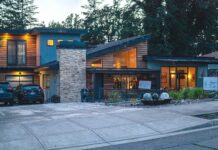The Good Neighbor Center in Tigard provides homeless families with a place to call home while they work on improving their situation. They serve around 75 families each year, which equates to about 275 to 300 people annually. They say that they give people a “hand up, not a handout,” as they hope to give people the tools they need to successfully secure permanent housing.

“It’s all about assisting, and serving, and walking alongside and making sure that the families are supported,” explained Renee Brouse, Executive Director of the Good Neighbor Center. “It’s not for us to solve their problems; it’s for us to help them figure out what those barriers are and try to overcome the barriers.”
This help comes in the way of a six-week stay, with families receiving not just a place to stay, but also food, clothing, hygiene products, and more. And with the basic needs met, people are expected to work with a case manager to identify their barriers and to work on them.
Barriers can be anything from trauma from being homeless, losing housing or being evicted due to unforeseen circumstances. Sometimes, it’s drug and alcohol abuse issues or criminal history. Renee elaborated further.
“We provide that hand up to help families overcome the barriers and to be successful in life. And because we help them focus on the kids as well, we’re trying to break the cycle of poverty,” she said.
Kids are expected to enroll in school, and there is a summer school program to keep them engaged over vacation. The parents, on the other hand, may complete a “Rent Well” class to remove an eviction from their rental history. Or they may look for a job if they don’t have one.
The next step is to complete the Housing Stabilization Program. Families are expected to make at least $1,400 a month to qualify, and they are placed in an apartment. At first, the rent is 25% of the normal amount. It then increases to 50%, 75%, and finally to 100% by the end of the year. This gives families time to adjust to the full rent amount. Throughout this time, families still work with their case managers. Many people continue to stay in touch with the center, years after they receive help.
The center notably runs with the help of over 1,500 volunteers. The volunteers help with everything from cleaning, yard work, painting, to cooking dinner. Plus, volunteers sleep at the center between 10:00 p.m. and 6:00 a.m to ensure someone is there should the need arise. Notably, the center was named this year as the 10th out of 100 best nonprofits to work for in Oregon by Oregon Business.
And in order to continue to help homeless families, the center is always actively searching for more housing. This has meant being resourceful too and working in conjunction with other programs. This was the case when Washington County started a voucher program in the last several months. Some of the families at the center were able to secure vouchers and were in turn placed in housing. Other times, it’s meant reaching out to apartment complexes that are already housing families from the center, and asking if they would accommodate more in the future.
Community members who would like to be involved have several options. It’s worth noting that the center is 100% dependent on donations, grants, and foundations. They don’t charge a membership fee.
Drop-off donations are currently being accepted for clothing and personal hygiene items. For the bedrooms, they seek bed linens, blankets, and pillows. Plus, they’re looking for pantry foods and fresh food.
Monetary donations are also accepted. Donations can be made with specific requests to use the funds for the housing program, the kids’ program, etc. Or, the donation can be directed to wherever it is needed the most.
Plus, those who are interested in volunteer opportunities should contact volunteer@goodneighborcenter.org.























